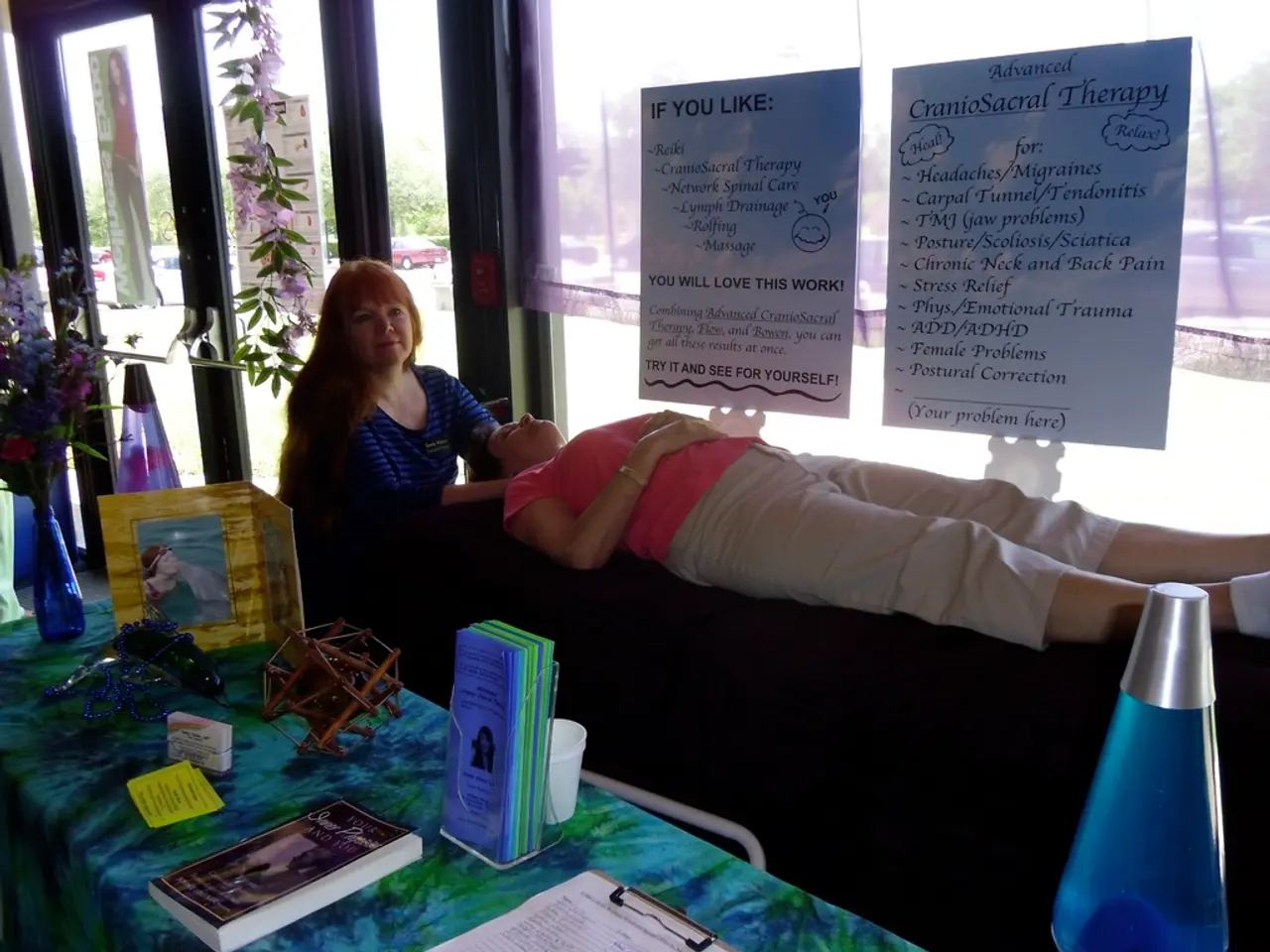Guide to Cultivating Self-Acceptance
Liking yourself, or enjoying your own company and having a high regard for your own well-being and overall happiness, can be a crucial aspect of maintaining good mental health. However, it's important to remember that it's normal to not always feel this way. Depression can cause feelings of self-hatred, hopelessness, guilt, and shame, making it difficult to like oneself. But there are evidence-based strategies that can help improve self-esteem and increase self-liking during these challenging times.
Engaging in regular physical activity is one such strategy. Exercise releases endorphins that improve mood and boost self-esteem. Activities you enjoy, such as walking, swimming, or dancing, practiced about 30 minutes daily can enhance body image and overall mental well-being.
Practicing mindfulness and meditation is another effective method. Focusing on the present moment helps reduce negative, ruminative thoughts that fuel low self-esteem and depression.
Cognitive Behavioral Therapy (CBT) is also a valuable tool. CBT targets negative thought patterns that damage self-worth, helping to reframe self-critical thoughts into more balanced, positive beliefs, fostering a healthier self-image.
Developing self-compassion is equally important. Treating yourself with the kindness you'd show a friend can help build a supportive internal dialogue during struggles.
Incorporating positive affirmations into your daily routine can counteract negative self-beliefs and boost confidence, especially during difficult moments. Setting small, achievable goals can also reinforce a sense of capability and worth.
Seeking professional support, such as therapy, offers a safe environment to explore self-esteem issues and gain tailored tools for growth. Therapy can be CBT, humanistic therapy, art therapy, or group therapy, each providing unique benefits.
Journaling for emotional reflection and identifying personal strengths are additional supportive strategies. Focusing on positive qualities rather than perceived flaws can help in building a more positive self-image.
Comparing oneself to others is generally unhelpful, as we are all unique and may not be aware of each other's inner struggles. Exercising for feelings of good health, rather than as a means of punishment, can be beneficial. Honouring one's body by listening to its signals and maintaining good hygiene practices can also aid in liking one's body.
To feel more like oneself during depression, retracing past sources of happiness and joy can help in recovering a sense of self. Getting to know oneself better can lead to discovering hidden aspects that one might find fond of.
Self-loathing, constantly feeling hatred for oneself, can be addressed with therapy and exercises to get to the root cause and build a version of oneself that is liked and even loved. Struggling to like yourself does not make one a bad person or unworthy of love.
When struggling with depression, it's important to be kind to oneself, seek comfort, and find a therapist to help explore the root causes and manage symptoms with self-compassion. Practicing kindness towards oneself can be beneficial when dealing with a harsh inner critic.
The process of building a better self involves trust and patience, as many people go through rough patches before becoming a version of themselves that they like. Remember, it's okay to not always like yourself, but with the right strategies and support, you can work towards a more positive and compassionate relationship with yourself.
[1] Mayo Clinic. (2021). Exercise: Finding the motivation. [online] Available at: https://www.mayoclinic.org/healthy-lifestyle/fitness/in-depth/exercise/art-20048389
[2] National Institute of Mental Health. (2021). Depression. [online] Available at: https://www.nimh.nih.gov/health/topics/depression/index.shtml
[3] American Psychological Association. (2021). Mindfulness. [online] Available at: https://www.apa.org/topics/mindfulness
[4] Beck, J. S., & Freeman, A. (2014). Cognitive behavior therapy: Basics and beyond. Guilford Publications.
[5] Linehan, M. M. (2015). DBT skills training manual: Mindfulness, distress tolerance, emotion regulation, and interpersonal effectiveness. Guilford Press.
Engaging in a routine of physical activity, such as walking, swimming, or dancing, for approximately 30 minutes each day, can enhance body image, increase self-esteem, and improve overall mental well-being, which are crucial aspects of personal growth and mental health.
Practicing mindfulness and meditation, especially during difficult moments, can help reduce negative self-beliefs and increase self-compassion, which are key components of education-and-self-development and health-and-wellness.




